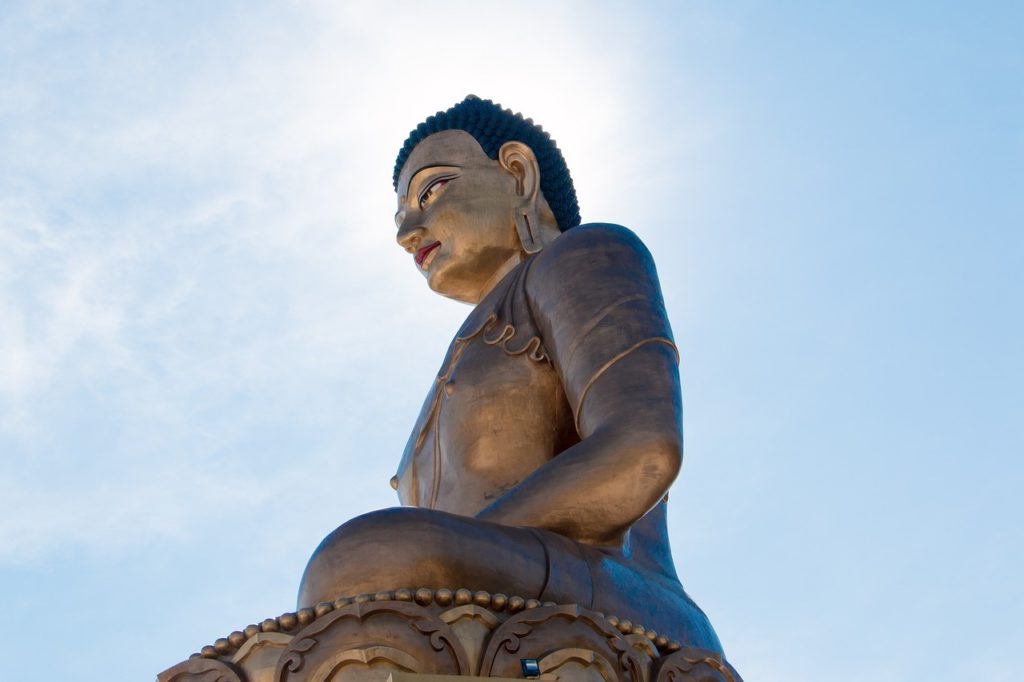Thanks to impradip on Pixabay for the image
Bhutan is a mysterious place, a landlocked country still isolated from the rest of the world. Although it enjoys a steady influx of tourists, this Himalayan country is untouched by modernism. An aura of mysticism elusively surrounds this traditional nation.
As a business traveler, you’ll need to understand the mountainous terrain, the travel permits, and the visas. Moreover, you’ll need to know where to stay, and it will be important to understand Bhutan’s business environment. Read on to find out more.
RELATED ARTICLE: TRAVELING ABROAD: HOW IT WILL HELP YOU GROW AS AN ENTREPRENEUR
Best Time to Visit for Business
The right time to visit Bhutan for business is during October and November. This is when the working population is busy with agriculture.
In order to enter Bhutan, you’ll need to apply for both an entry permit and a route permit. Government prescribed packages take care of visas for foreigners. Additionally, a registered tourist agent will take care of the process of the documents and permits. You can easily obtain all of the information you’ll need at Bhutan Tourism.
Business Opportunities in Bhutan
Cereals and wood are Bhutan’s chief products. Additionally, small-scale industries include textiles, carpets, and handicrafts.
Electric power generation, increasing tourism, and foreign exchange have brought about growth in the country’s export industries. As a result, Bhutan is now a part of the World Trade Organization and the South Asian Association for Regional Cooperation.
Tourism, essential oils, handicrafts, and stamps are significant sources of foreign exchange. Principal imports include machinery, vehicles, fabrics, fuel, and lubricants.
Moreover, even though Bhutan is landlocked, there are rushing rivers and waterfalls everywhere. Therefore, hydroelectric plants are beginning to usher in more electricity.
Communications to Keep in Touch
TV and radio broadcasting are offered by Bhutan Broadcasting Service. Telephone and WiFi services are improving, and mobile phones are becoming more popular. However, telephone service can be slow at times. Other times, over-subscription can create problems. On the other hand, Internet cafes are springing up in the major towns and in some hotels.
It’s worth noting that because of the high price of Bhutanese stamps, mail here is likely to suffer disruption, as stamps are often stolen en route.
Your Business Trip
Bhutan is not an easy place to get to. Therefore, apply for your business visa well in advance. What’s more, it’s best to travel with a group. Additionally, keep in mind that the weather can be tricky in the Himalayas, and this can affect your flights.
All the same, when you land, you will be surrounded by amazing views of mountain ridges and the unique Dzong buildings. Hundreds of prayer flags will fly in the breeze.
Once you have passed through immigration and handled all of the requirements regarding your visa, passport, and landing card, you will be free to enter the country.
Keep in mind, however, that cigarette smoking is illegal, but you’ll still be allowed to carry up to 200 cigarettes for personal consumption.
Additionally, be aware of the list of banned imports into Bhutan. These include pornography, narcotics, and antiques. Other restricted imports include drugs, arms, and ammunition. Also restricted are gold and silver, secondhand goods, chemicals, and telecommunications equipment.
Understanding the Currency
When you’re traveling on business, you should know how to handle money in Bhutan.
Ngultrum is the currency here. It is available in denominations of 500, 100, 50, 20, 10 and 5. However, the merchants here also accept US dollars. On the other hand, the ATMs accept only Bhutanese bank cards, so be sure to have one. Alternatively, you can buy travelers’ checks at the Bank of Bhutan. While there are no restrictions on the import or export of currencies, you’ll need to declare them in full when you arrive.
Where to Stay
There are plenty of hotels, cottages, and guest houses where you can be comfortable. You can expect hot and cold running water, room telephones, and electricity. If you’re willing to pay higher prices, you can stay at a luxury hotel. Tour operators can book your room for you well in advance of your trip.
Getting Around
As you move about during your business trip to Bhutan, you will find that the country has a fairly good network of roads. The key routes are from Phuentsholing to the Paro and Thimphu regions and Thrumshing La Pass to the central valleys. However, there are no roads toward the northern Himalaya regions.
Cars and private taxis are the best way to get from place to place in Bhutan. However, you can also use the public buses, as the distances between Bhutanese towns is not great.
Must-See Attractions in Bhutan
Even if you are here on a business trip and not backpacking, you shouldn’t miss the opportunity to explore the local attractions. There is plenty to do and see in this land of monks and monasteries.
For example, you can attend the archery competition that is held across the country. You can visit beautiful Bumthang with its four sacred valleys. Make a point of seeing Punakha Dzong, the second Buddhist monastery in Bhutan.
If you’re in good physical shape, you can climb up the Himalayan passes and enjoy spectacular views. Explore historic Thimphu with its weekend market in your free time. Additionally, Trashi Yangtse valley beckons travelers. When you’re there, you’ll feel as if you’re in a different world.
From Drametse Goemba monastery, you’ll see spectacular views of the mountain valleys and jungle-cloaked hills. Tashi Chho Dzong is another popular and monumental monastery. It is home to about 1,600 monks.
Create a special memory by enjoying Bhutan’s three colorful Buddhist festivals. These festivals are world-famous for their monster masks and rainbow-colored costumes. Paro, too, lures locals and travelers alike because of its monasteries and ancient temples.


